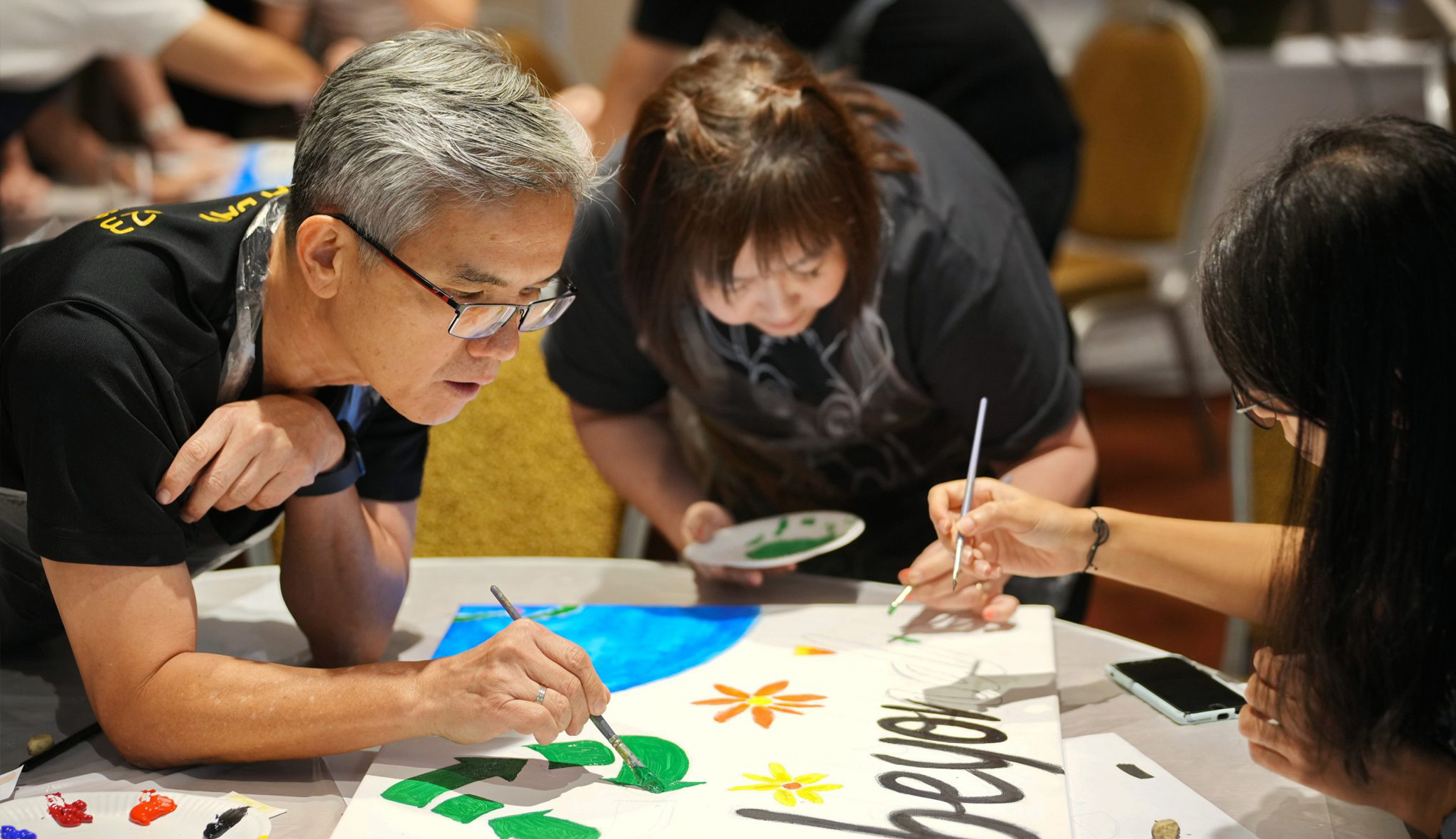适合零基础的数码绘画课程就在视觉艺术中心

适合零基础的数码绘画课程 , 如果要想把数码绘画作品画得好,就要提升数码绘画水平,从以下几个方面入手:
1. 多学习透视与构图
- 学习透视原理,练习一点透视、两点透视等,同时多研究构图方式。
- 掌握光影处理与体积感表现
- 理解光源的方向、强弱如何影响物体,练习用明暗来塑造立体感。
- 熟悉色彩理论
- 学习色相、色度、饱和度,掌握配色原则,比如对比色、互补色的使用。
- 学习人物解剖与结构
- 如果涉及角色绘画,学习人体解剖知识和动态结构尤为重要。

适合零基础的数码绘画课程 - 就在视觉艺术中心
2. 熟悉数码工具和技巧
- 掌握绘画软件学习 Photoshop、Procreate、Clip Studio Paint 等常用软件的功能,比如图层管理、画笔设置等。
- 熟练运用画笔: 熟悉各种画笔的特性,尝试制作和使用自定义笔刷,丰富画面质感。
- 学习特效: 学习添加光效、粒子效果等,提升画面氛围。

3. 提高观察能力与表达能力
- 先从临摹入手:临摹优秀作品,学习它们的构图、用色和细节处理方式,但注意逐步融入自己的风格。
- 提升写生与速写能力:多观察现实生活中的光影、色彩和结构,培养敏锐的观察力。
- 学习独立创作:定期做主题练习,比如画一组场景或角色,模拟不同的风格和题材。



适合零基础的数码绘画课程

新加坡视觉艺术中心开办的数码绘画课程内容包括:
- 数码绘画基础理论,熟悉硬件软件及工具使用。
- 学习构图、透视、速写、静物风景人物写生等,训练造型能力。
- 学习数码绘画的起稿、构图、涂色、光影、纹理、质感、特效等。
适合零基础的数码绘画课程
视觉艺术中心的数码绘画课程适合八岁以上儿童和青少年、成人,从基础开始学习,即使是零基础也可以参加课程。学员们在专业的老师指导下,迅速掌握数码绘画技巧,在短时间内提升。
课程有12节,24节,每节课2小时15分钟。
加入我们,开始这段令人兴奋的数码绘画之旅!
课程安排 – 专业数码绘画课程【12节课】
周一 5:00pm-7:15pm / 7:30pm-9:45pm
周四 3:30pm-5:45pm
周六 6:30pm-8:45pm
12节课程 $1,188净价
适合零基础的数码绘画课程就在视觉艺术中心
无论你是对绘画充满热情的初学者,还是希望提升自己数码绘画技能的爱好者,我们的课程都能满足你的需求。课程内容涵盖基本的绘画技巧、软件使用指南以及创意表达的方式,让你在轻松愉快的氛围中学习。
我们的专业教师团队拥有丰富的教学经验,将通过生动的示范和个性化的指导,帮助你在数码绘画的世界中找到属于自己的风格。课程不仅包括理论知识的讲解,还有大量实践练习,让你在动手操作中不断进步。
此外,视觉艺术中心还提供丰富的学习资源和交流平台,鼓励学员们互相分享作品和创意,形成良好的学习氛围。无论你希望创作插画、概念艺术还是其他形式的数码作品,我们都欢迎你的加入。
现在就来报名参加我们的数码绘画课程,开启你的艺术之旅吧!
联系我们
请致电或通过WhatsApp联系我们:6255 0711,或发送邮件至 info@visualartscentre.sg 了解更多信息!
















